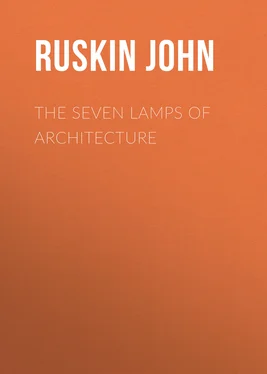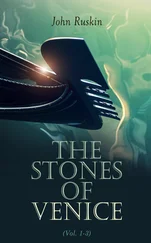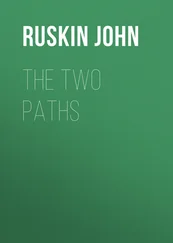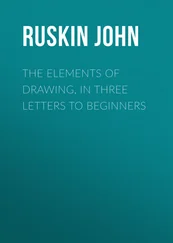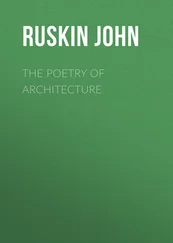John Ruskin - The Seven Lamps of Architecture
Здесь есть возможность читать онлайн «John Ruskin - The Seven Lamps of Architecture» — ознакомительный отрывок электронной книги совершенно бесплатно, а после прочтения отрывка купить полную версию. В некоторых случаях можно слушать аудио, скачать через торрент в формате fb2 и присутствует краткое содержание. Жанр: foreign_antique, foreign_home, architecture_book, literature_19, visual_arts, на английском языке. Описание произведения, (предисловие) а так же отзывы посетителей доступны на портале библиотеки ЛибКат.
- Название:The Seven Lamps of Architecture
- Автор:
- Жанр:
- Год:неизвестен
- ISBN:нет данных
- Рейтинг книги:3 / 5. Голосов: 1
-
Избранное:Добавить в избранное
- Отзывы:
-
Ваша оценка:
- 60
- 1
- 2
- 3
- 4
- 5
The Seven Lamps of Architecture: краткое содержание, описание и аннотация
Предлагаем к чтению аннотацию, описание, краткое содержание или предисловие (зависит от того, что написал сам автор книги «The Seven Lamps of Architecture»). Если вы не нашли необходимую информацию о книге — напишите в комментариях, мы постараемся отыскать её.
The Seven Lamps of Architecture — читать онлайн ознакомительный отрывок
Ниже представлен текст книги, разбитый по страницам. Система сохранения места последней прочитанной страницы, позволяет с удобством читать онлайн бесплатно книгу «The Seven Lamps of Architecture», без необходимости каждый раз заново искать на чём Вы остановились. Поставьте закладку, и сможете в любой момент перейти на страницу, на которой закончили чтение.
Интервал:
Закладка:
CHAPTER II.
THE LAMP OF TRUTH
I. There is a marked likeness between the virtues of man and the enlightenment of the globe he inhabits—the same diminishing gradation in vigor up to the limits of their domains, the same essential separation from their contraries—the same twilight at the meeting of the two: a something wider belt than the line where the world rolls into night, that strange twilight of the virtues; that dusky debateable land, wherein zeal becomes impatience, and temperance becomes severity, and justice becomes cruelty, and faith superstition, and each and all vanish into gloom.
Nevertheless, with the greater number of them, though their dimness increases gradually, we may mark the moment of their sunset; and, happily, may turn the shadow back by the way by which it had gone down: but for one, the line of the horizon is irregular and undefined; and this, too, the very equator and girdle of them all—Truth; that only one of which there are no degrees, but breaks and rents continually; that pillar of the earth, yet a cloudy pillar; that golden and narrow line, which the very powers and virtues that lean upon it bend, which policy and prudence conceal, which kindness and courtesy modify, which courage overshadows with his shield, imagination covers with her wings, and charity dims with her tears. How difficult must the maintenance of that authority be, which, while it has to restrain the hostility of all the worst principles of man, has also to restrain the disorders of his best—which is continually assaulted by the one, and betrayed by the other, and which regards with the same severity the lightest and the boldest violations of its law! There are some faults slight in the sight of love, some errors slight in the estimate of wisdom; but truth forgives no insult, and endures no stain.
We do not enough consider this; nor enough dread the slight and continual occasions of offence against her. We are too much in the habit of looking at falsehood in its darkest associations, and through the color of its worst purposes. That indignation which we profess to feel at deceit absolute, is indeed only at deceit malicious. We resent calumny, hypocrisy and treachery, because they harm us, not because they are untrue. Take the detraction and the mischief from the untruth, and we are little offended by it; turn it into praise, and we may be pleased with it. And yet it is not calumny nor treachery that does the largest sum of mischief in the world; they are continually crushed, and are felt only in being conquered. But it is the glistening and softly spoken lie; the amiable fallacy; the patriotic lie of the historian, the provident lie of the politician, the zealous lie of the partizan, the merciful lie of the friend, and the careless lie of each man to himself, that cast that black mystery over humanity, through which any man who pierces, we thank as we would thank one who dug a well in a desert; happy in that the thirst for truth still remains with us, even when we have wilfully left the fountains of it.
It would be well if moralists less frequently confused the greatness of a sin with its unpardonableness. The two characters are altogether distinct. The greatness of a fault depends partly on the nature of the person against whom it is committed, partly upon the extent of its consequences. Its pardonableness depends, humanly speaking, on the degree of temptation to it. One class of circumstances determines the weight of the attaching punishment; the other, the claim to remission of punishment: and since it is not easy for men to estimate the relative weight, nor possible for them to know the relative consequences, of crime, it is usually wise in them to quit the care of such nice measurements, and to look to the other and clearer condition of culpability; esteeming those faults worst which are committed under least temptation. I do not mean to diminish the blame of the injurious and malicious sin, of the selfish and deliberate falsity; yet it seems to me, that the shortest way to check the darker forms of deceit is to set watch more scrupulous against those which have mingled, unregarded and unchastised, with the current of our life. Do not let us lie at all. Do not think of one falsity as harmless, and another as slight, and another as unintended. Cast them all aside: they may be light and accidental; but they are an ugly soot from the smoke of the pit, for all that; and it is better that our hearts should be swept clean of them, without over care as to which is largest or blackest. Speaking truth is like writing fair, and comes only by practice; it is less a matter of will than of habit, and I doubt if any occasion can be trivial which permits the practice and formation of such a habit. To speak and act truth with constancy and precision is nearly as difficult, and perhaps as meritorious, as to speak it under intimidation or penalty; and it is a strange thought how many men there are, as I trust, who would hold to it at the cost of fortune or life, for one who would hold to it at the cost of a little daily trouble. And seeing that of all sin there is, perhaps, no one more flatly opposite to the Almighty, no one more "wanting the good of virtue and of being," than this of lying, it is surely a strange insolence to fall into the foulness of it on light or on no temptation, and surely becoming an honorable man to resolve that, whatever semblances or fallacies the necessary course of his life may compel him to bear or to believe, none shall disturb the serenity of his voluntary actions, nor diminish the reality of his chosen delights.
II. If this be just and wise for truth's sake, much more is it necessary for the sake of the delights over which she has influence. For, as I advocated the expression of the Spirit of Sacrifice in the acts and pleasures of men, not as if thereby those acts could further the cause of religion, but because most assuredly they might therein be infinitely ennobled themselves, so I would have the Spirit or Lamp of Truth clear in the hearts of our artists and handicraftsmen, not as if the truthful practice of handicrafts could far advance the cause of truth, but because I would fain see the handicrafts themselves urged by the spurs of chivalry: and it is, indeed, marvellous to see what power and universality there is in this single principle, and how in the consulting or forgetting of it lies half the dignity or decline of every art and act of man. I have before endeavored to show its range and power in painting; and I believe a volume, instead of a chapter, might be written on its authority over all that is great in architecture. But I must be content with the force of instances few and familiar, believing that the occasions of its manifestation may be more easily discovered by a desire to be true, than embraced by an analysis of truth.
Only it is very necessary in the outset to mark clearly wherein consists the essence of fallacy as distinguished from supposition.
III. For it might be at first thought that the whole kingdom of imagination was one of deception also. Not so: the action of the imagination is a voluntary summoning of the conceptions of things absent or impossible; and the pleasure and nobility of the imagination partly consist in its knowledge and contemplation of them as such, i.e. in the knowledge of their actual absence or impossibility at the moment of their apparent presence or reality. When the imagination deceives it becomes madness. It is a noble faculty so long as it confesses its own ideality; when it ceases to confess this, it is insanity. All the difference lies in the fact of the confession, in there being no deception. It is necessary to our rank as spiritual creatures, that we should be able to invent and to behold what is not; and to our rank as moral creatures that we should know and confess at the same time that it is not.
Читать дальшеИнтервал:
Закладка:
Похожие книги на «The Seven Lamps of Architecture»
Представляем Вашему вниманию похожие книги на «The Seven Lamps of Architecture» списком для выбора. Мы отобрали схожую по названию и смыслу литературу в надежде предоставить читателям больше вариантов отыскать новые, интересные, ещё непрочитанные произведения.
Обсуждение, отзывы о книге «The Seven Lamps of Architecture» и просто собственные мнения читателей. Оставьте ваши комментарии, напишите, что Вы думаете о произведении, его смысле или главных героях. Укажите что конкретно понравилось, а что нет, и почему Вы так считаете.
